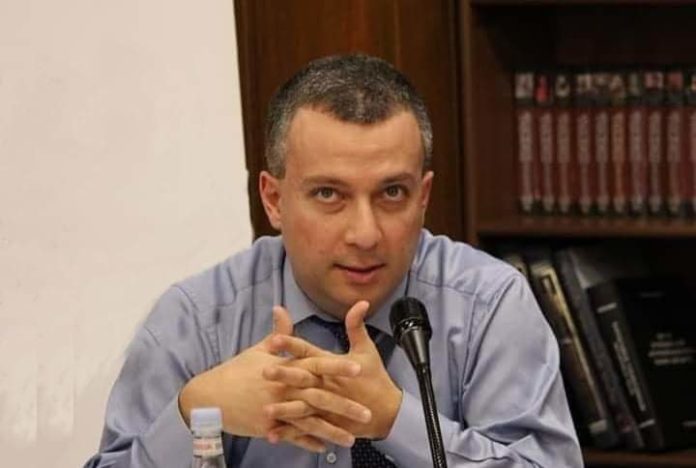As the South Caucasus becomes increasingly involved in the great power competition, and the US-Russia confrontation impacts regional geopolitics, Iran looks for additional ways to secure its national interests. Iran’s top foreign policy priority remains the Middle East, where Tehran seeks to consolidate its power and influence in Iraq, Syria, and Lebanon. However, Iran views the South Caucasus as a significant region where Tehran should continue its presence and prevent anti-Iranian developments.
Iran is concerned with growing Azerbaijan-Israel political, economic, and military cooperation. Israel was one of the biggest weapons suppliers to Azerbaijan before, during, and after the 2020 Nagorno Karabakh war. According to several sources and reports, Israel’s security services actively use Azerbaijan territory for their anti-Iranian activities. Azerbaijan established control over the 130 km. long Nagorno Karabakh-Iran border due to the 2020 war and opened two airports there – Fizuli and Zangelan – located very close to the Azerbaijan-Iran border. Given the absence of population in these territories, the construction of two airports has no other logical explanation than the dual – civilian and military – usage of these airports. The recent visit of the Israeli defense minister to Azerbaijan proved that bilateral military ties, including shipments of modern weapons, continue to develop. Armenia is probably not the only target for Israeli arms.
Iran is also concerned by the ongoing discussions about establishing the so-called “Zangezur corridor” to connect Azerbaijan with Turkey via the Syunik province of Armenia. Iranian experts and some officials have already dubbed this a “Turan corridor,” referring to the Pan-Turkist dreams of establishing a common economic, cultural, and political area spinning from Istanbul to the Kazakhstan–China border. The establishment of the organization of Turkic states in November 2021 raised alarm bells in Tehran as a first tangible step towards creating a “Turanic empire.” The existence of an up to 25 million Azeri-speaking population in Northern Iran, located along the Iran–Azerbaijan border, is another concern for Iran. Tehran believes that Israel and the US seek to trigger separatist movements in that areas and use this as additional leverage to sow instability in Iran.
Not surprisingly, in recent months, high-level Iranian officials made several statements arguing that the change of borders and geopolitical situation in the South Caucasus was a red line for Tehran. Iran is looking for ways to increase its presence in Syunik, and opening a consulate was a step in that direction. The Iranian foreign minister visited Armenia for the opening ceremony and reiterated the Iranian position that any change in borders was unacceptable. Meanwhile, Iran is also concerned by the possible decrease of Russian influence in the South Caucasus due to the shift of Russian focus towards Ukraine. Iran strongly believes that less Russia in the region means more US, regardless of whether the US will be present here through Israel or Turkey. Given the growing Russia–Iran military cooperation amidst the ongoing war in Ukraine and Iran’s full membership in the Shanghai Cooperation Organization, Russia may view Iran as a good option to balance the US involvement in the region via increased Turkish and Israeli presence.
Simultaneously, Iran seeks not to alienate Azerbaijan completely. Tehran needs some influence in Baku, and a complete rupture of relations will deprive Iran of any tools to influence Azerbaijani politics. Azerbaijan may play a significant role in launching the International North-South Transport Corridor, which should connect India with Russia via Iran. The Western route of the corridor passes via Azerbaijan, while the eastern route connects Iran with Russia via Turkmenistan and Kazakhstan.
Iran views the development of its relations with Armenia as an essential tool in its efforts to balance Turkey in the region. In this context, Tehran was concerned about the growing US role in Armenia–Azerbaijan negotiations and the US push to sign the Armenia–Azerbaijan peace agreement by the end of 2022. If the Armenia-Azerbaijan and Armenia-Turkey normalization process results in the withdrawal of Russian peacekeepers from Nagorno Karabakh and Russian military base and border troops from Armenia, it will have multiple geopolitical risks for Iran. In this context, Iran seeks to send clear messages to Armenia that Tehran is concerned by the appearance of foreign forces in the region, hinting that any U-turn in Armenian foreign policy from Russia to the US will automatically make Armenia a hostile nation for Iran. Meanwhile, Iran seeks to foster economic relations with Armenia. During Armenia’s prime minister’s November 1, 2022 visit to Tehran, Armenia and Iran signed an agreement to extend the terms of the “gas for electricity” deal, which envisages the import of Iranian gas to Armenia and the export of electricity to Armenia. According to Iranian officials, Armenia and Iran agreed to a significant increase in the volume of Iranian gas exported to Armenia. The Iranian president spoke about the mutual will to reach the annual 3 billion USD threshold in Armenia–Iran trade.








